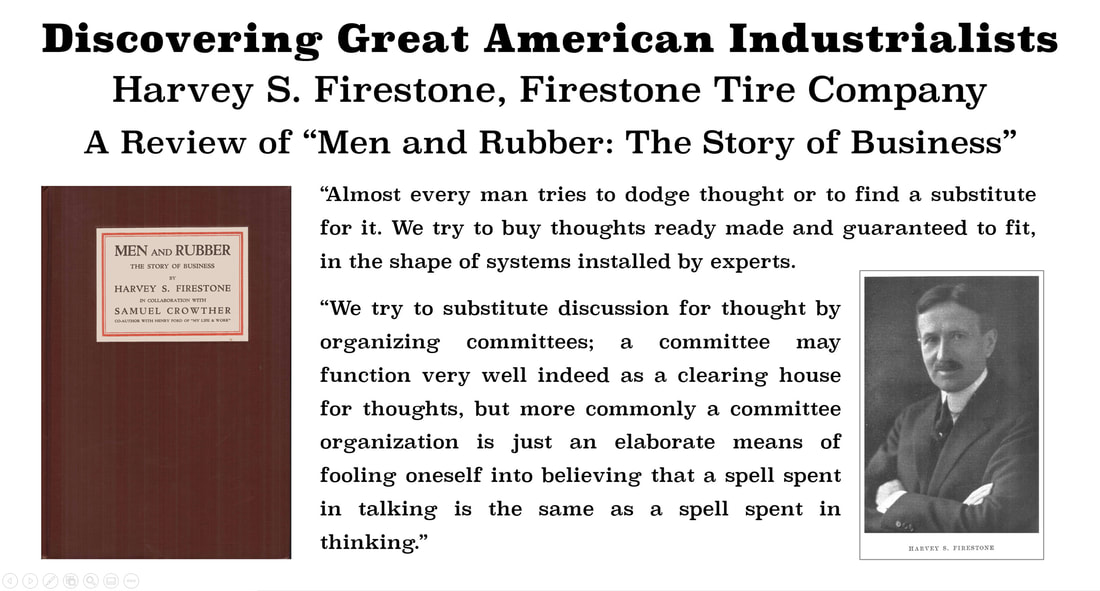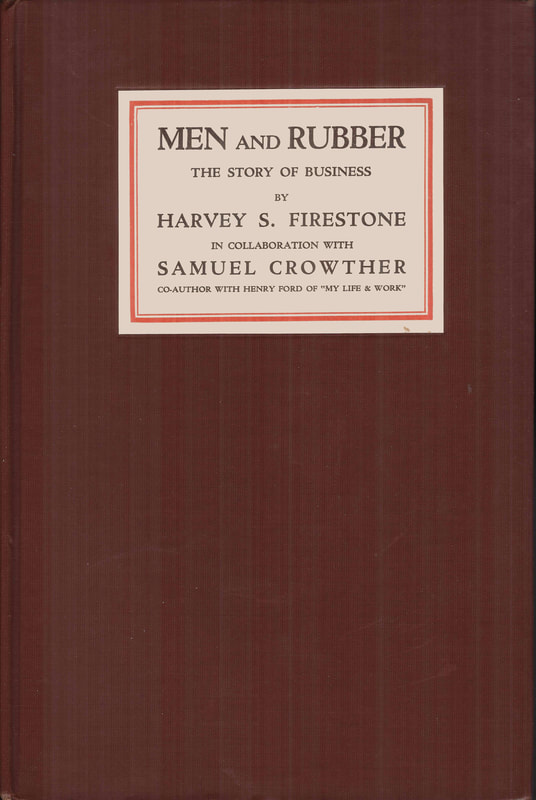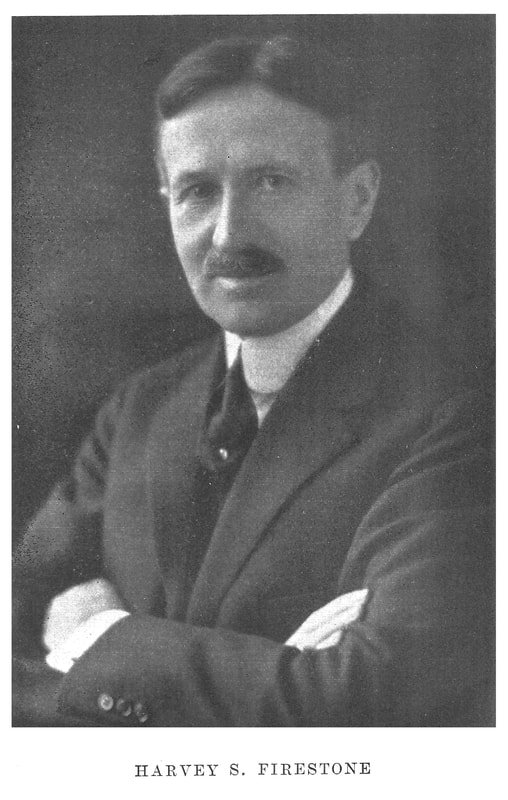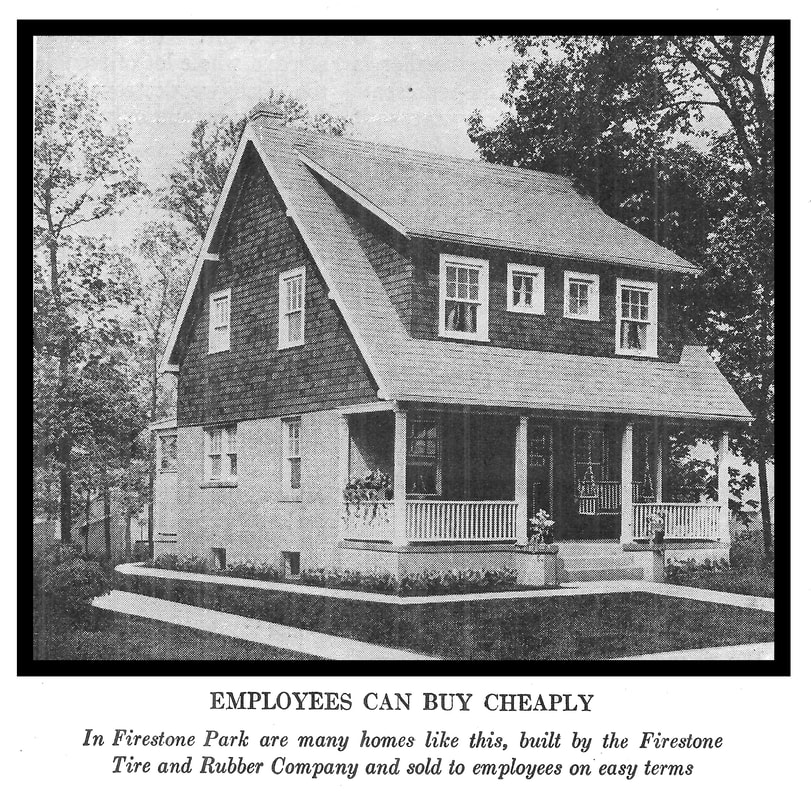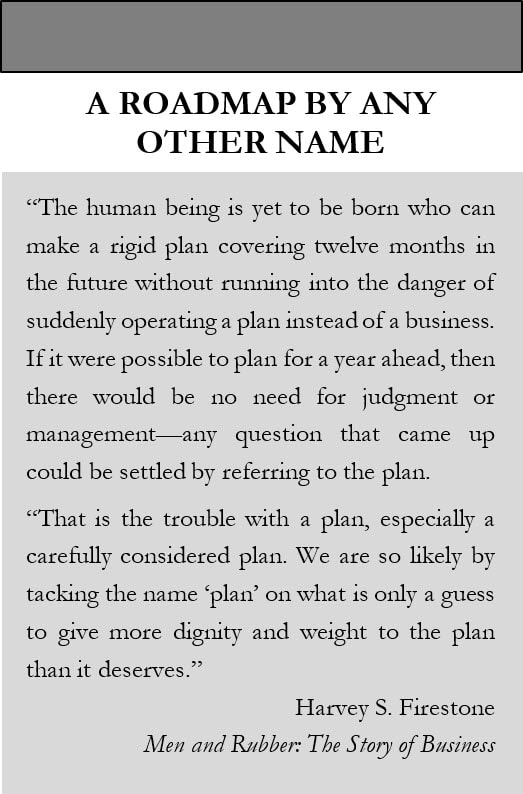A Review of Harvey S. Firestone's "Men and Rubber"
|
|
Date Published: June 29, 2021
Date Modified: June 29, 2024 |
"Business is founded on thought. Optimism and enthusiasm are valuable in keeping up the morale of an organization—they are lubricants which help to overcome friction—but they cannot be the driving power, and they cannot substitute for well-thought-out business principles, any more than a machine will run just because it is well oiled.
"Power has to be transmitted before a wheel will turn."
"Power has to be transmitted before a wheel will turn."
Harvey S. Firestone, Men and Rubber
A Review of "Men and Rubber: The Story of Business" by Harvey S. Firestone
- Reviews of the Day: 1926
- Selected Quotes from "Men and Rubber"
- This Author’s Thoughts and Perceptions
Reviews of the Day: 1926
|
"Returning from a pleasure trip in Europe, Firestone learned that his firm owed banks $44 million, as the price of rubber suddenly dropped in 1920 from 55 to 16 cents a pound. … Firestone ordered a 25% cut in the price of tires. It was unheard of madness … but Firestone's management was sound. Four years later every dollar of indebtedness had been repaid. …
" 'Men and Rubber' is a book full of sound business sense which is at the same time fascinatingly written. The collaboration of Mr. Crowther insured a freedom from dullness which most such business books have." The Kansas City Star, July 24, 1926
"Harvey B. Firestone is a multi-millionaire tire manufacturer. Samuel Crowther is a man who writes about multi-millionaires. The two together have hatched out a book called 'Men and Rubber.' Mr. Crowther helps out the writing part and Mr. Firestone helps out with ideas. It proves a startling combination."
|
George Currie, The Brooklyn Daily Eagle, July 25, 1926
Editor's note: This book, in multiple reviews, is one of the first times when Samuel Crowther is paid the respect he is due for his multiple collaborations with some of the greatest industrialists of his day including: John H. Patterson, Henry Ford (three books), Harvey S. Firestone, and A. B. Farquhar. [Select this link to understand Samuel Crowther's place in "American Industrialist History."]
This book is an amazing "book of quotes." I highly recommend it if looking for "common sense" approaches to running a business in a profitable manner. This is advice that has spanned multiple generations of businessmen and -women.
This book is an amazing "book of quotes." I highly recommend it if looking for "common sense" approaches to running a business in a profitable manner. This is advice that has spanned multiple generations of businessmen and -women.
Selected Quotes from "Men and Rubber"
|
"The test of a business man is not whether he can make money in one or two boom years, or can make money through the luck of getting into the field first, but whether in a highly competitive field, without having any initial advantage over his competitors, he can outdistance them in a perfectly honorable way and keep the respect of himself and of his community."
"Thinking is not required all the way down the line in business. The difficulty is to pick out the men who can and will think and get them into the positions where thought is needed."
|
"The single reason for the existence of any business must be that it supplies a human need or want, and, if my experience is worth anything, a business which has this reason for its existence will be bound in the end to prosper if thought be put into it. … Thought, not money, is the real business capital, and if you know absolutely that what you are doing is right, then you are bound to accomplish it in due season."
"Competition rarely puts any one out of business—a man usually puts himself out of business either by not making a good article or by wrong methods in sales or finance."
Editor's note: An individual could post a quote-a-day on a blog from this book and not run short of new insights. Harvey S. Firestone put as much emphasis on THINK-ing as Thomas J. Watson Sr.
This Author's Thoughts and Perceptions
|
This book enabled me to place significant historical context around the leadership of Thomas J. Watson Sr. For example, in THINK: A Biography of the Watsons and IBM [select this link to read a review of this book on this site] William Rogers wrote, that Watson's forecast "fell apart in the postwar panic of 1921, a short-term catastrophe that produced a nationwide wave of bankruptcies."
As I was reading Men and Rubber I found this: "We [Firestone Company] were sailing smoothly with the wind and we were so strong that we thought nothing could harm us. We had all the bank credit we could possibly use. We dwelt on Easy Street and walked on velvet. Then, in the fall of 1920—not out of a clear sky but out of a sky which looked clear to us, for, in our prosperity, we had stopped thinking—the tornado swept out, gripped us, and shook us." |
Research then revealed that this was a lengthy 18-month long recession (NBER), definitely not short term, and Watson Sr. wasn't the only one caught but many of the best industrialists of the day and time like Charles A Coffin at General Electric.
Reading Mr. Firestone's philosophy of business was refreshing:
Reading Mr. Firestone's philosophy of business was refreshing:
- "The test of a business man is not whether he can make money in one or two boom years, or can make money through the luck of getting into the field first, but whether in a highly competitive field, without having any initial advantage over his competitors, he can out distance them in a perfectly honorable way and keep the respect of himself and of his community."
|
This philosophy of Harvey S. Firestone should embarrass those that embrace the business processes of a John D. Rockefeller Sr. Rockefeller lost the respect of his community because he did not compete in a perfectly honorable way.
To put it within a 21st Century context, Harvey S. Firestone spoke as an industrialist-driven, not a stock-market-driven chief executive. I think the sidebar provided here provides some good insight into the choice words Mr. Firestone would have had for Samuel J. Palmisano's 2010 and 2015 Roadmaps at IBM. We need more industrialist-minded chief executives. Cheers, - Pete |
